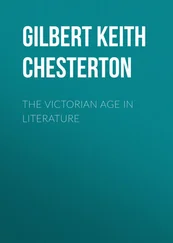Michael Kurland - Victorian Villainy
Здесь есть возможность читать онлайн «Michael Kurland - Victorian Villainy» весь текст электронной книги совершенно бесплатно (целиком полную версию без сокращений). В некоторых случаях можно слушать аудио, скачать через торрент в формате fb2 и присутствует краткое содержание. Жанр: Классический детектив, на английском языке. Описание произведения, (предисловие) а так же отзывы посетителей доступны на портале библиотеки ЛибКат.
- Название:Victorian Villainy
- Автор:
- Жанр:
- Год:неизвестен
- ISBN:нет данных
- Рейтинг книги:5 / 5. Голосов: 1
-
Избранное:Добавить в избранное
- Отзывы:
-
Ваша оценка:
- 100
- 1
- 2
- 3
- 4
- 5
Victorian Villainy: краткое содержание, описание и аннотация
Предлагаем к чтению аннотацию, описание, краткое содержание или предисловие (зависит от того, что написал сам автор книги «Victorian Villainy»). Если вы не нашли необходимую информацию о книге — напишите в комментариях, мы постараемся отыскать её.
Victorian Villainy — читать онлайн бесплатно полную книгу (весь текст) целиком
Ниже представлен текст книги, разбитый по страницам. Система сохранения места последней прочитанной страницы, позволяет с удобством читать онлайн бесплатно книгу «Victorian Villainy», без необходимости каждый раз заново искать на чём Вы остановились. Поставьте закладку, и сможете в любой момент перейти на страницу, на которой закончили чтение.
Интервал:
Закладка:
The question was not destined to be answered, at least not then. At that moment the front door banged open and a police sergeant of immense girth, a round, red face, and a majestic handlebar mustache stomped down the hall and into the room. “Here now,” he boomed. “What are you gentlemen doing in here, if I might ask?”
“Sergeant Meeks,” Holmes said. “You’ve returned to the scene of the crime. Perhaps you are going to take my suggestion after all.”
Meeks looked at Holmes with an air of benevolent curiosity. “And what suggestion might that be, young man?”
“I mentioned to you that it might be a good idea to post a constable here to keep the curiosity-seekers from wandering about. It was when you were escorting Professor Maples into the carriage to take him away.”
“Why so it was, Mr., ah,-”
“Holmes. And this is Mr. Moriarty.”
Meeks gave me a perfunctory nod, and turned his attention back to Holmes. “Yes, Mr. Holmes. So it was, and so you did. We of the regular constabulary are always grateful for any hints or suggestions as we might get from young gentlemen such as yourself. You also said something about preserving the foot-marks along the lane out back, as I remember.”
“That’s right.”
“Well I went to look at them foot-marks of yours, Mr. Holmes, lifting up a couple of them boards you put down and peering under. They was just what you said they was-foot-marks; and I thanks you kindly.”
“From your attitude I can see that you don’t attach much importance to the imprints,” Holmes commented, not allowing himself to be annoyed by the sergeant’s words or his sneering tone.
“We always try to plot a straight and true course when we’re investigating a case,” the sergeant explained. “There are always facts and circumstances around that don’t seem to fit in. And that’s because, if you’ll excuse my saying so, they have nothing to do with the case.”
“But perhaps there are times when some of these facts that you ignore actually present a clearer explanation of what really happened,” Holmes suggested. “For example, Sergeant, I’m sure you noticed that the footsteps were all made by a woman. Not a single imprint of a man’s foot on that path.”
“If you say so, Mr. Holmes. I can’t say that I examined them all that closely.”
Holmes nodded. “If what I say is true,” he said, “doesn’t that suggest anything to you?”
Sergeant Meeks sighed a patient sigh. “It would indicate that the accused did not walk on the path. Perhaps he went by the road. Perhaps he flew. It don’t really matter how he got to the cottage, it only matters what he did after he arrived.”
“Did you notice the imprint of the walking stick next to the woman’s footsteps?” Holmes asked. “Does that tell you nothing?”
“Nothing,” the sergeant agreed. “She may have had another walking stick, or perhaps the branch from a tree.”
Holmes shrugged. “I give up,” he said.
“You’d be better off leaving the detecting to the professionals, young man,” Meeks said. “We’ve done some investigating on our own already, don’t think we haven’t. And what we’ve heard pretty well wraps up the case against Professor Maples. I’m sorry, but there you have it.”
“What have you heard?” Holmes demanded.
“Never you mind. That will all come out at the inquest, and that’s soon enough. Now you’d best be getting out of here, the pair of you. I am taking your advice to the extent of locking the cottage up and having that broken window boarded over. We don’t want curiosity seekers walking away with the furniture.”
We retrieved our hats and coats and the bag with Professor Maples’ fresh clothing and left the cottage. The rain had stopped, but dusk was approaching and a cold wind gusted through the trees. Holmes and I walked silently back to the college, each immersed in our own thoughts: Holmes presumably wondering what new facts had come to light, and trying to decide how to get his information before the authorities; I musing on the morality of revealing to Holmes, or to others, what I had discerned, and from that what I had surmised, or letting matters proceed without my intervention.
Holmes left me at the college to continue on to the police station, and I returned to my rooms.
The inquest was held two days later in the chapel of, let me call it, St. Elmo’s College, one of our sister colleges making up the university. The chapel, a large gothic structure with pews that would seat several hundred worshipers, had been borrowed for this more secular purpose in expectation of a rather large turnout of spectators; in which expectation the coroner was not disappointed.
The coroner, a local squire named Sir George Quick, was called upon to perform this function two or three times a year. But usually it was for an unfortunate who had drowned in the canal or fallen off a roof. Murders were quite rare in the area; or perhaps most murderers were more subtle than whoever had done in Andrea Maples.
Holmes and I sat in the audience and watched the examination proceed. Holmes had gone to the coroner before the jury was seated and asked if he could give evidence. When he explained what he wanted to say, Sir George sent him back to his seat. What he had to offer was not evidence, Sir George explained to him, but his interpretation of the evidence. “It is for the jury to interpret the evidence offered,” Sir George told him, “not for you or I.” Holmes’s face was red with anger and mortification, and he glowered at the courtroom and everyone in it. I did my best not to notice.
Lucinda was in the front row, dressed in black. Her face wooden, she stared straight ahead through the half-veil that covered her eyes, and did not seem to be following anything that was happening around her. Crisboy sat next to her, wearing a black armband and a downcast expression. Professor Maples was sitting to one side, with a bulky constable sitting next to him and another sitting behind him. He had a bemused expression on his face, as though he couldn’t really take any of this seriously.
Sir George informed the assemblage that he was going to proceed in an orderly manner, and that he would tolerate no fiddle-faddle and then called his first witness. It turned out to be the young bicyclist with the sticky fingers. “I could see that it was blood,” he said, “and that it had come from beneath the door-from inside the house.”
Then he described how he and his companions broke a window to gain entrance, and found Andrea Maples’ body sprawled on the floor by the front door.
“And how was she dressed?” the coroner asked.
“She was not dressed, sir,” came the answer.
A murmur arose in the audience, and the young man blushed and corrected himself. “That is to say, she was not completely dressed. She had on her, ah, undergarments, but not her dress.”
“Shoes?” the coroner asked, with the bland air of one who is called upon to discuss semi-naked ladies every day.
“I don’t believe so, sir.”
“That will be all,” the coroner told him, “unless the jury have any questions?” he added, looking over at the six townsmen in the improvised jury box.
The foreman of the jury, an elderly man with a well-developed set of mutton-chop whiskers, nodded and gazed out at the witness. “Could you tell us,” he asked slowly, “what color were these undergarments?”
“White,” the young man said.
“Now then,” Sir George said, staring severely at the foreman, “that will be enough of that!”
Sergeant Meeks was called next. He sat in the improvised witness box hat in hand, his uniform and his face having both been buffed to a high shine, the very model of English propriety. The coroner led him through having been called, and arriving at the scene with his two constables, and examining the body.
Читать дальшеИнтервал:
Закладка:
Похожие книги на «Victorian Villainy»
Представляем Вашему вниманию похожие книги на «Victorian Villainy» списком для выбора. Мы отобрали схожую по названию и смыслу литературу в надежде предоставить читателям больше вариантов отыскать новые, интересные, ещё непрочитанные произведения.
Обсуждение, отзывы о книге «Victorian Villainy» и просто собственные мнения читателей. Оставьте ваши комментарии, напишите, что Вы думаете о произведении, его смысле или главных героях. Укажите что конкретно понравилось, а что нет, и почему Вы так считаете.
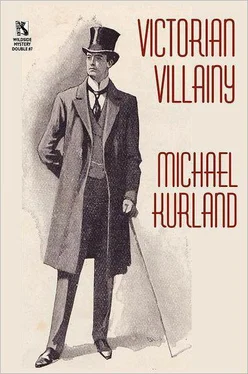
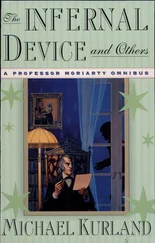

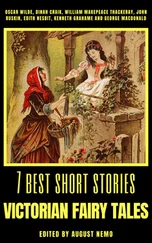




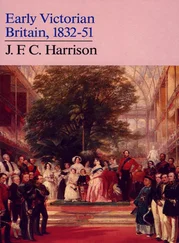
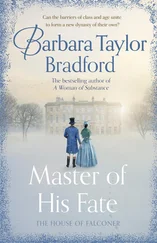
![Brian Thompson - A Monkey Among Crocodiles - The Life, Loves and Lawsuits of Mrs Georgina Weldon – a disastrous Victorian [Text only]](/books/704922/brian-thompson-a-monkey-among-crocodiles-the-life-thumb.webp)
